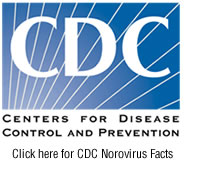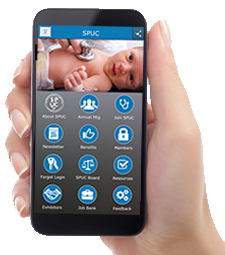Norovirus is the Most Common Cause of Viral Gastroenteritis
 While we see gastroenteritis year-round, we can see higher numbers in late winter/early spring when Norovirus peaks. Norovirus is the most common cause of viral gastroenteritis outbreaks and can be seen all year long. It can infect all age groups and has a short incubation period of 12-48 hours. Duration is shorter than most other causes at one to four days. Vomiting is the most common feature of Norovirus. While transmission is fecal oral as with most forms of gastroenteritis, one can also see water borne, shellfish related and possibly respiratory transmission with Norovirus. In the winter, Astrovirus is also seen, but in lower numbers. Here the incubation period is four to five days and symptoms can last five to six days. Adenovirus is seen in the summer months and has a different pattern than Norovirus. The incubation period is longer at three to 10 days as well as lasting much longer at six to nine days. Adenovirus tends to infect children more than adults. Rotavirus is much less prevalent after vaccination as the likelihood of infection is decreased even after a single dose.
While we see gastroenteritis year-round, we can see higher numbers in late winter/early spring when Norovirus peaks. Norovirus is the most common cause of viral gastroenteritis outbreaks and can be seen all year long. It can infect all age groups and has a short incubation period of 12-48 hours. Duration is shorter than most other causes at one to four days. Vomiting is the most common feature of Norovirus. While transmission is fecal oral as with most forms of gastroenteritis, one can also see water borne, shellfish related and possibly respiratory transmission with Norovirus. In the winter, Astrovirus is also seen, but in lower numbers. Here the incubation period is four to five days and symptoms can last five to six days. Adenovirus is seen in the summer months and has a different pattern than Norovirus. The incubation period is longer at three to 10 days as well as lasting much longer at six to nine days. Adenovirus tends to infect children more than adults. Rotavirus is much less prevalent after vaccination as the likelihood of infection is decreased even after a single dose.
All etiologies have some combination of vomiting and/or diarrhea. Blood in the stool is uncommon in viral gastroenteritis, and its presence should make one consider other causes. Duration more than seven days should also prompt consideration of other causes. Almost every child has at least one episode of gastroenteritis before age two, and these are almost all viral. After age two, one needs to start thinking about bacterial causes, but viral etiologies still predominate. The most common complication of gastroenteritis is dehydration. Therefore, the history and exam should focus on assessing the child’s fluid balance. One should remember that not all vomiting and diarrhea are gastroenteritis; we need to always think of other diagnoses, especially appendicitis and intussusception, which should not be missed. Also, some children with otitis media, lower lobe pneumonias, UTIs, and streptococcal pharyngitis can present with vomiting. A good history can help assess risks such as exposures during travel, animals, foods, or sick contacts. A complete physical exam is necessary to make an accurate diagnosis by not missing some other etiologies of vomiting and diarrhea.
 Oral rehydration therapy is the preferred first line treatment for patients with gastroenteritis with mild to moderate dehydration. It’s cheaper, easier, less invasive and can be taught so parents can do it at home. Oral ondansetron is very helpful for the child with intractable vomiting. Remember that the ODT version does not have an evenly distributed amount of medicine and thus cannot be split.
Oral rehydration therapy is the preferred first line treatment for patients with gastroenteritis with mild to moderate dehydration. It’s cheaper, easier, less invasive and can be taught so parents can do it at home. Oral ondansetron is very helpful for the child with intractable vomiting. Remember that the ODT version does not have an evenly distributed amount of medicine and thus cannot be split.




 Institutional Sponsor:
Institutional Sponsor: